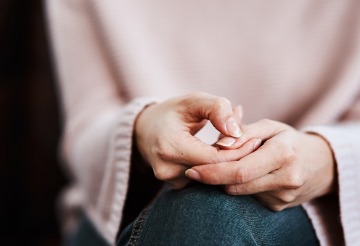


Zopiclone is a sleeping pill that's used to treat short-term insomnia. This non-benzodiazepine sedative acts in a similar way to benzodiazepines, and can also lead to dependency and addiction.
If you're worried that you may be dealing with a zopiclone addiction, or are concerned about someone you're close to, we have looked at the signs and symptoms that could suggest that someone is struggling with the drug. We have also outlined the addiction treatment options that are available at Priory to help people recover from their dependency and deal with their addictive behaviours.
Common signs and symptoms of zopiclone addiction
There are a number of signs and symptoms that can suggest that someone is dealing with a zopiclone addiction. These include:
- Taking more zopiclone than recommended by a doctor, possibly indicating that they're using more to get the same effect
- Having to buy additional zopiclone tablets online or through street dealers
- Taking zopiclone tablets that are prescribed for someone else
- Using zopiclone with other substances such as alcohol or other drugs, or using more zopiclone when they can't find other drugs like diazepam or alcohol, which act in a similar way
- Snorting or injecting zopiclone
- Attempting to hide zopiclone use or tablets from others
- Continuing to take zopiclone, regardless of its effects on health, finances, wellbeing and relationships
- Using zopiclone without a medical complaint
- Trying to stop taking zopiclone but being unable to do so
- Experiencing withdrawal symptoms if the drug isn’t used
- Undertaking risky, dangerous or illegal activity as a result of zopiclone
- Being unable to maintain relationships and responsibilities
- Becoming isolated and more withdrawn from people
Zopiclone addiction and its withdrawal symptoms
If zopiclone is taken regularly for an extended period of time, a person will build up a tolerance to it. They will then need to take the drug more regularly or in higher dosages to feel its effects.
Zopiclone, or similar drugs like zolpidem, affect the same part of the brain as benzodiazepines and alcohol, hence cross tolerance among these drugs can occur.
A person can become dependent on zopiclone, where their body becomes so used to functioning with the drug that it needs it to feel ‘normal’. If the person attempts to stop or reduce their use, this can cause withdrawal symptoms as their body attempts to function once again without it.
Common withdrawal symptoms of zopiclone addiction include:
- Anxiety
- Shakes and tremors
- Sweating and hot flushes
- Insomnia
- Racing heart and heart palpitations
When someone who's addicted to zopiclone reduces or stops taking the drug, seizures and delirium can also happen in extreme circumstances.
A person dealing with such an addiction will typically find it difficult to stop on their own. As an addiction is something that impacts both the body and mind, it's important that the physical dependency and the psychological element of the addiction are both dealt with. Therefore, professional support is something that's highly recommended.
Medically managed detoxification
It's advised that when someone is detoxing from a zopiclone addiction, it's done in a medically assisted environment. This will make sure the withdrawal is well monitored, and the person remains as safe and comfortable as possible while their body adjusts to functioning without the substance once again.
At Priory, our team is highly experienced in managing the physical and psychological symptoms of withdrawal. With personalised detox plans, round-the-clock care and expert medical assistance, a person has the opportunity to successfully rid their body of the drug.
A residential addiction treatment programme
When someone is dealing with a zopiclone addiction, it's recommended that a medically managed detoxification is followed up with a residential addiction treatment programme. This can help a person to come to terms with the psychological element of their addiction and learn ways to effectively maintain their recovery.
At Priory, our addiction treatment programme provides people with the motivation and self-confidence to make and maintain positive changes in their life. Through workshops, group therapy sessions and individual key working time, people can come to recognise the causes of their addictive behaviours, and discover tactics to deal with stressors and triggers in the future.
People who take part in our 28-day addiction treatment programme also get access to free aftercare for a year following treatment. During our treatment programme, we work with people to put together personalised care plans for life post-treatment, identifying potential pitfalls and solutions to help reduce the risk of relapse. Our 12-month aftercare service then provides people with continuous support as they begin on this journey, as well as plenty of advice and encouragement to support them along the way.



